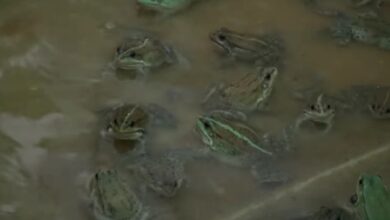Is Carmine Halal
Carmine, a vibrant red dye, is widely used in the food and cosmetics industry. Derived from the crushed bodies of cochineal insects, it can be found in a range of products, from yogurts and candies to lipsticks and eyeshadows. The question of whether carmine is halal has sparked significant debate among Muslim scholars and consumers. Understanding the halal status of carmine involves delving into Islamic dietary laws, scholarly opinions, and the nature of the dye itself.
What is Carmine?
Carmine, also known as cochineal extract or E120, is a natural dye extracted from the female cochineal insect. These insects are dried and crushed to produce a rich red pigment, which is then used in various products. Carmine is valued for its stability and intensity, making it a popular choice in the food and cosmetic industries.

The Halal Perspective
Islamic dietary laws categorize substances as halal (permissible) or haram (forbidden). The status of carmine is contentious due to its insect origin. Different schools of Islamic thought have varying interpretations regarding its permissibility:
Arguments for Carmine Being Haram
- Insect Origin: Some scholars argue that insects are generally considered impure (najis) and their consumption or use is prohibited.
- Impurity Analogy: Insects are often compared to other impure animals like pigs and dogs, reinforcing their haram status.
- Scholarly Declarations: Organizations such as the Permanent Committee for Scholarly Research and Ifta’ and the Assembly of Muslim Jurists of America have declared carmine as haram due to its impure origins.
Arguments for Carmine Being Halal
- Processing and Purification: Some scholars believe that the extensive processing carmine undergoes removes its impurity, making it halal.
- Lack of Explicit Prohibition: There is no direct mention in the Quran or Hadith explicitly forbidding the use of carmine.
- Minority Opinions: Scholars from the Hanafi and Maliki schools of thought argue that carmine can be permissible if the insects are not harmful and do not have flowing blood.
Carmine in Products
Carmine is found in a wide variety of products, raising concerns among Muslim consumers:
Foods
- Candies: Popular brands like Skittles and Starburst use carmine to achieve their bright red colors.
- Dairy Products: Yogurts, ice creams, and certain beverages may contain carmine as a colorant.
Cosmetics
- Makeup: Carmine is a common ingredient in lipsticks, blushes, and eyeshadows, providing vibrant red hues.
- Personal Care Products: Shampoos and other personal care items may also contain carmine for coloring purposes.
Making Informed Choices
For Muslims who seek to adhere to halal dietary laws, making informed choices about products containing carmine is crucial. Here are some steps to consider:
- Check for Halal Certification: Look for products that have been certified halal by recognized authorities.
- Consult with Scholars: Seek guidance from knowledgeable Islamic scholars or local imams to clarify any doubts.
- Explore Alternatives: Opt for products that use alternative natural dyes, such as beetroot or paprika extracts, which do not raise halal concerns.

Frequently Asked Questions
What is Carmine?
Carmine, also known as cochineal extract, is a red dye derived from the dried and crushed bodies of female cochineal insects.
Is Carmine Halal or Haram?
The halal status of carmine is debated. Some scholars consider it haram due to its insect origin, while others deem it halal based on its processing and lack of explicit prohibition in Islamic texts.
Can Muslims Consume Foods Containing Carmine?
This depends on the interpretation of Islamic dietary laws by individual Muslims. Some may avoid it due to its insect origin, while others may consider it permissible.
Are Cosmetics Containing Carmine Permissible?
The permissibility of using cosmetics containing carmine varies. Many scholars permit external use, while others advise avoiding it.
What are Alternative Natural Dyes to Carmine?
Alternative natural dyes include beetroot extract, paprika extract, and annatto, which do not raise halal concerns.
Is Carmine Used in Medications?
Yes, carmine is used in some medications for coloring purposes. The permissibility of such medications should be discussed with a knowledgeable Islamic scholar.
How Can I Identify Carmine in Product Labels?
Carmine may be listed as E120, cochineal extract, or natural red 4 on product labels.
Are There Halal-Certified Products Without Carmine?
Yes, many halal-certified products use alternative dyes and explicitly avoid carmine. Look for halal certification labels.
Does the Processing of Carmine Make It Halal?
Some scholars argue that the extensive processing of carmine removes its impurity, making it halal. This view is not universally accepted.
Can Carmine Be Considered Halal Due to Necessity?
In cases of necessity, such as the unavailability of alternatives, some scholars may permit the use of carmine. This should be a last resort.
Is Carmine Harmful to Health?
Carmine is generally considered safe for consumption by food safety authorities. However, some individuals may have allergies to it.
How Do Different Islamic Schools of Thought View Carmine?
Different schools of thought have varying views. The Hanafi and Maliki schools may permit it, while others may not.
Can Carmine Be Used in Non-Food Products?
Yes, carmine is used in non-food products like cosmetics and personal care items. Its permissibility varies based on the product type and use.
Where Can I Buy Halal Products Without Carmine?
Halal-certified stores, online halal marketplaces, and mainstream stores with halal-certified sections offer products without carmine.
Should I Consult a Scholar About Carmine?
Yes, consulting a knowledgeable Islamic scholar can provide clarity and guidance on the permissibility of using products containing carmine.
How Can I Ensure My Choices Align with My Beliefs?
Stay informed about product ingredients, seek halal certification, and consult with scholars to make choices that align with your beliefs.
Conclusion
The halal status of carmine remains a nuanced and debated issue within the Islamic community. While some scholars deem it haram due to its insect origin, others argue that the purification process and lack of explicit prohibition make it permissible. Ultimately, the decision to consume or use products containing carmine rests with individual Muslims, guided by their interpretation of Islamic teachings and scholarly advice.





